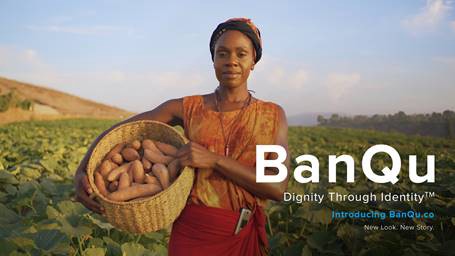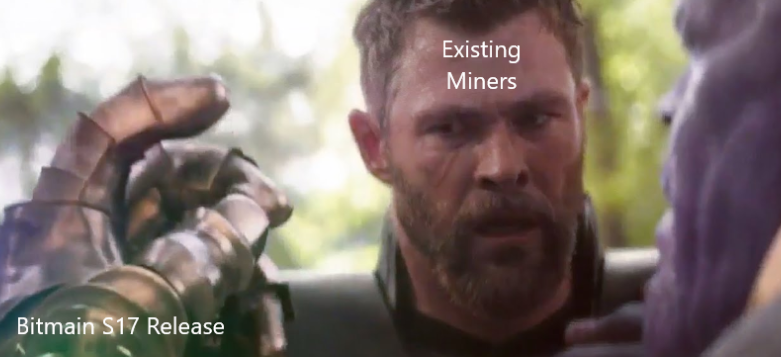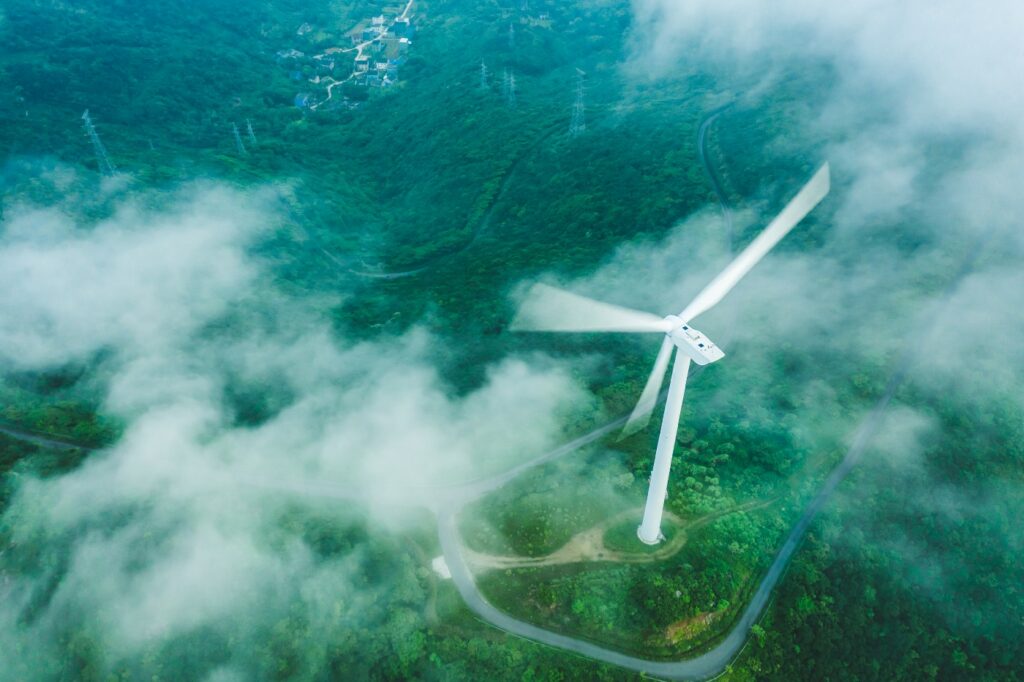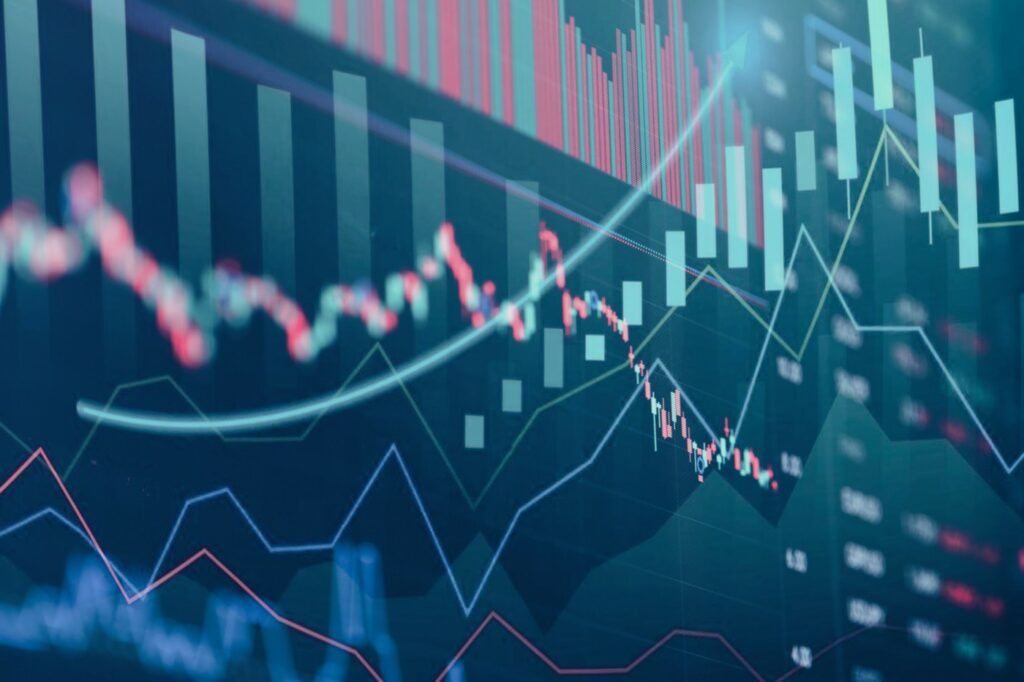By John Belizaire, CEO at Soluna
Contrary to popular belief, there’s no need for these two attributes to be at odds: The drive to make a large-scale social impact while also being cash flow positive can go hand-in-hand. Building people up, taking on poverty, and boosting brands — all while empowering consumers — with a for-profit venture may sound like magic, but it’s actually happening right now.
In this final installment of my three-part series on inspiring eco companies, you may not be surprised that the secret sauce is blockchain. Previously, I talked about Tesla and the innovations emerging from its energy storage solutions division. Next, I focused on the soon-to-be-launched Virgin Voyages and their potential to alter the climate-killing course of the cruise industry, giving customers a vote for environmentally sound choices in the process.
Inspiration feels great, but downright exhilaration? I’ll reserve that for BanQu. Rethinking basically everything with its platform, this first-ever blockchain Economic Identity technology is designed to enable a secure and immutable platform for creating economic opportunities for people worldwide. Today, The BanQu App serves those living in extreme poverty.
I was honored when BanQu’s CEO and Co-Founder, my longtime friend Ashish Gadnis, invited me to be on their board of directors. Motivated by his own experiences working with unbanked farmers in the Congo, Ashish recognized that the distributed ledger technology of blockchain was capable of solving a huge problem: It could provide a platform where refugees, the displaced, and the world’s poorest people can maintain a free, secure online profile that allows them to begin tracking their relationships and transactions.
A recognizable, vetted economic identity builds up from there — the base prerequisite to participating in any form of ownership or transactions in the global economy. BanQu users decide what information to share and with whom, while maintaining ownership of their personal information.
The result? Providing people with control of their own Economic Identity. This is positively world-changing, and it’s what BanQu calls “Dignity Through Identity.” The benefits spread out far and wide.
The Breakthrough
Put simply, BanQu is achieving the coupling of a person’s government-issued identity with a record of the real value they’re adding to the system — in the regions where this is most needed. “If you’re in the developing world, identity is not the problem,” Ashish points out in this interview.“ If you look at women farmers, especially, they have identity cards. What’s missing is the transaction identity — a collection of life events, or transactions that happened. So the real value of blockchain for us is…if that’s coupled with your transaction identity, that’s the breakthrough.”
This leads directly to one of the attributes of caring companies that I identified in Part 1 of this series: The effect on local economies. BanQu has launched its platform in Kenya, successfully creating a digital identity for hundreds of refugees and individuals in extreme poverty zones. These people are now well on their way to creating a long-term, secure economic profile that they can leverage for access to financial and government services.
Shifting continents, BanQu is piloting yet another program. In Latin America, their platform is enabling small-plot farmer land mapping, especially for women farmers there, where access to finance is difficult to obtain due to a lack of land rights and outdated property registries.
As we noted in “Is Blue the New Green?” positive impact is a cycle, one where multinational corporations play a major role in sparking change. In this arena, Anheuser-Busch InBev has invested — and recently re-invested — in BanQu, building up their partnership in an impressive pilot program.
Together, the two are creating transparency and traceability in the cassava crop value chain by providing economic empowerment to 2,000 of Zambia’s small-scale farmers. As the world’s largest brewer, Anheuser-Busch InBev understands how blockchain’s secure and immutable nature can improve supply chain management, and subsequently enhance ROI through asset provenance. The program has already connected those 2,000 Zambian farmers to BanQu’s mobile platform — which works on any cell phone due to its simple SMS functionality — in the course of harvesting and selling 2,000 tons of cassava, to produce a high-quality starch used in beer by the end of Zambia’s growing season.
In addition to agriculture examples like the above, BanQu’s blockchain-as-a-service supply chain software is focused on two other key areas: fashion and conflict minerals. According to Ashish, approximately one billion people are engaged in creating raw materials or finished goods for multi-billion dollar companies in these industries, many of whom are living in extreme poverty.
“It was kind of a no-brainer,” he explains. “If we build a supply chain software that allows these brands to be more profitable with more responsibility, you can now pull millions of people out of poverty by looking at just these three industries.”
That’s where the consumer gets their chance to play a part in driving change. Through BanQu, retail customers can ask questions about a product’s origin — only now they can actually expect a thorough answer, which activates accountability for corporations.
“Our dream is simple: I have teenage daughters. I want my 16-year-old to say, ‘Dad, do we know where these Abercrombie jeans came from?’ We don’t know if they were made by slave labor in Haiti or Honduras, and these are the same people who are in extreme poverty. That’s the connection we made, using blockchain.”
Lighting the Way
Watching BanQu grow has given me a fresh perspective on the massive opportunities that companies have today to innovate while pairing up purpose with profit.
At Soluna, the mission started with the quest for a new way to support Bitcoin and its energy-intensive Proof of Work (PoW) mining process. Our answer: high-performance, off-the-grid data centers which are co-located with, and powered by 100% renewable energy power plants.
We were founded in 2018, and already my talented team and I have gone on a fascinating journey, as we’ve discovered the broader implications of a successful launch — benefits that go far beyond Bitcoin. We realize that if we do this well, Soluna could have a significant positive impact on the development of renewable energy projects globally, and especially in developing countries.
When you look at energy projects in general, including renewable energy projects, most of the opportunity is in developing countries. Drilling down, the largest opportunity is the African continent, where countries’ infrastructure is a hugely important element in their progress, growth, and economic development. Wherever you look in Africa, you’ll find a country that’s hampered by the fact that it’s not reliably lit up — it just doesn’t have the electrification across enough of the country to power industry and bring in foreign investments.
But if there were a way to encourage the construction of more power plants in those areas, it would greatly improve these countries’ ability to become self-sustaining, grow and develop. I think it’s about time that we give them that opportunity, and Soluna is capable of doing just that.
In fact, some of the host countries of our renewable energy power plants may not be ready to fully utilize all the power that we can generate. With our vertically integrated approach (generate 100% renewable energy, consume high-performance computing) we can bring power to a place that may not even be ready to use 100% of that power. In those cases, we use some more of this ourselves for more PoW mining.
The result is a stepping-stone approach to bringing power to a developing area. It also allows us to bring blockchain technology to the region — which in turn brings education, investment, and all sorts of interesting, larger advantages beyond simply the economic ones.
The prospect of affecting impact like this is very inspiring to me. Scratch that — exhilarating! It gets me jumping out of bed every morning because accomplishing even a sliver of our goals would provide huge benefits to the areas where we’re developing.
We can bring Soluna’s unique approach anywhere in the world and deliver a tremendous amount of value. Not just a power plant, but an entire ecosystem! No doubt, the going gets tough at times, which is exactly why we look to our guiding lights to keep us on course. Here’s to you BanQu, Tesla, Virgin Voyages, and the many other companies who care enough to put their eco ideas into action. Taken together, it’s a mindset that matters.
If you enjoyed what you’ve read today, please clap and comment. Also, you can stay up to date on our other platforms of your choice below.
RELATED READING — Tesla is getting us supercharged and Is Blue the New Green.




